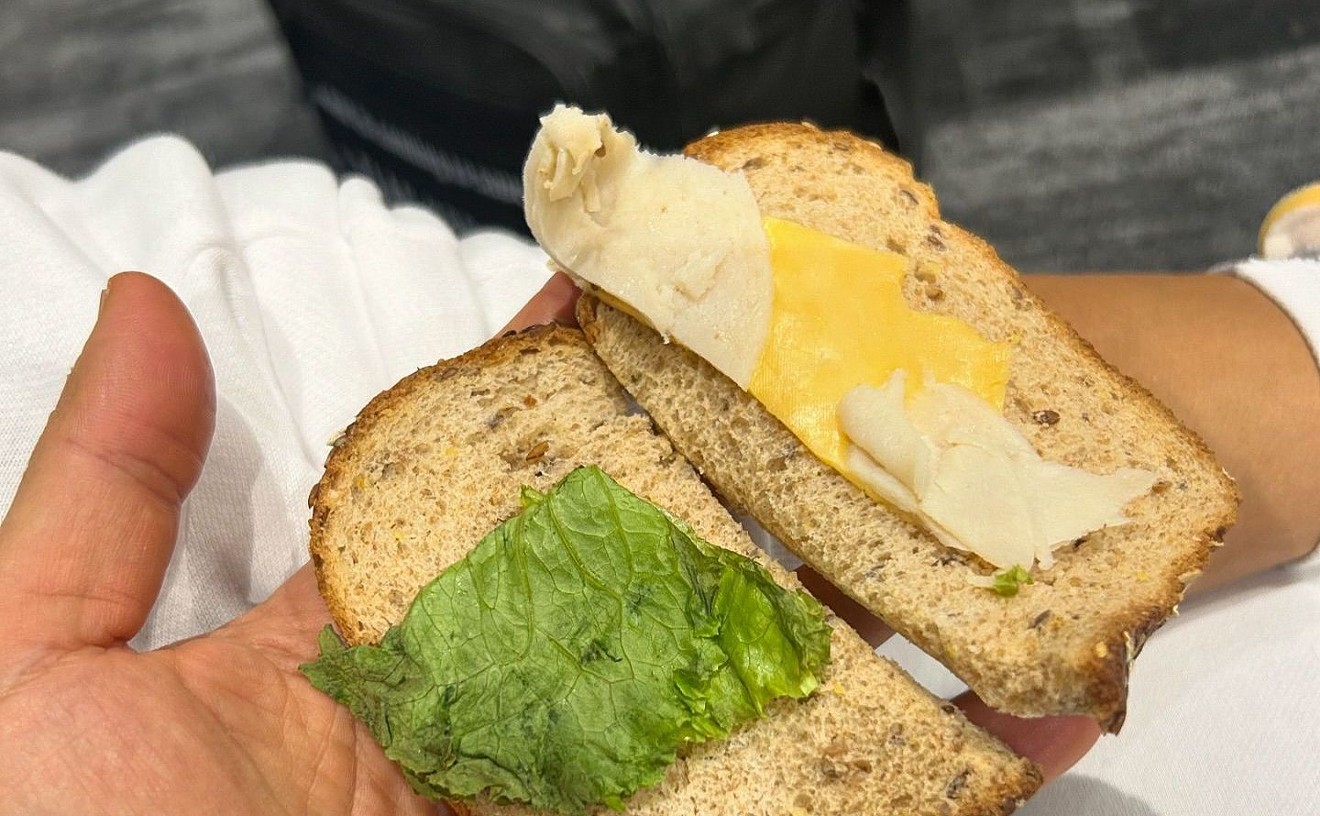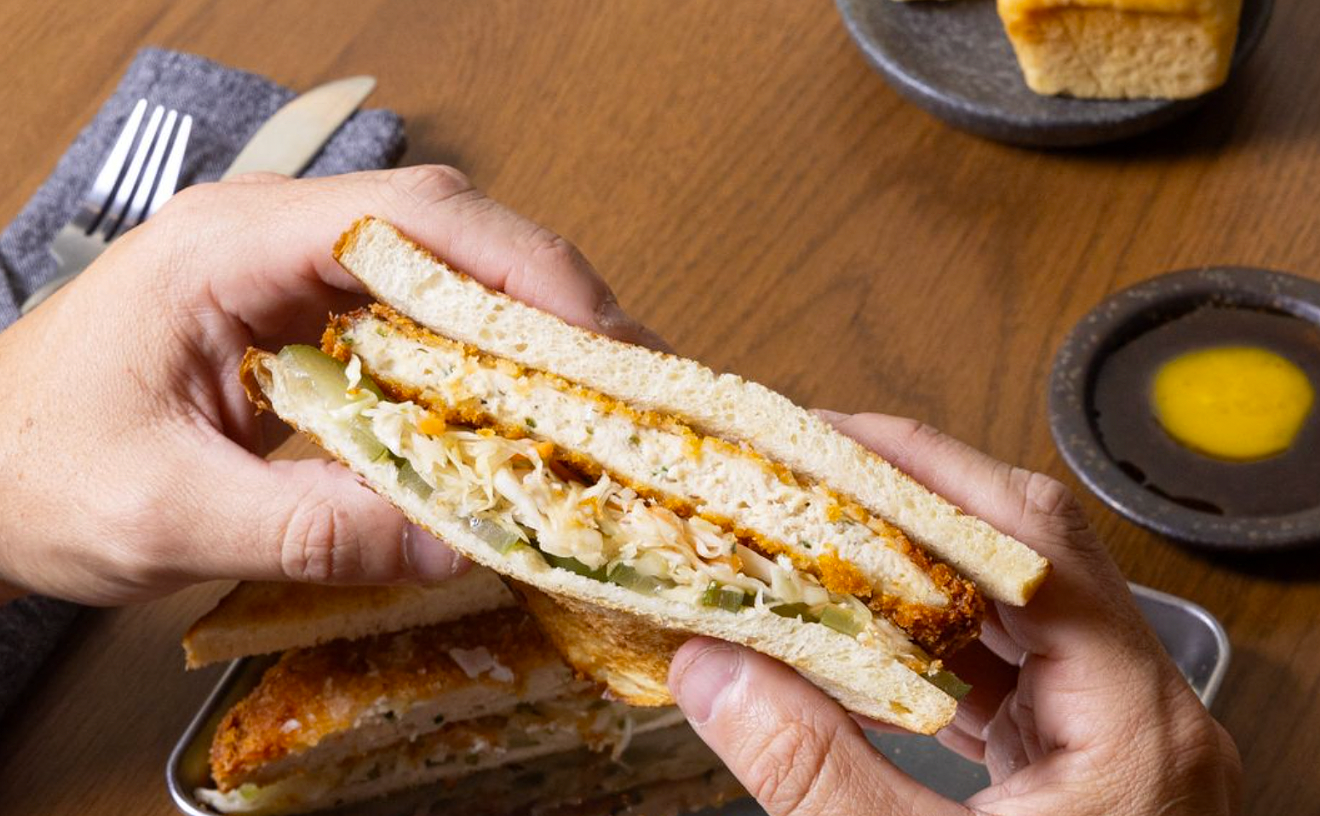In fact, shark meat is legally sold at certain retailers, including one local Publix. But with populations dwindling across the world (many making the endangered list), is it OK to be buying shark meat at your neighborhood grocer?
See also:
- Publix Seafood Practices Rank 19 of 20 Stores Analyzed, Greenpeace Says
- Local Production Company Shines a Spotlight on the Fish Farming Industry
Sharks are a large genus, consisting of a whopping 470 species, but all achieve sexual maturity later in life and are slow to reproduce. Due to that fact, sharks are extremely vulnerable to overfishing. So is it ever OK to eat them?
After a reader spotted wild shark on sale at the Publix at 14630 SW 26th St., Short Order decided to dig into the issue.
While the label didn't specify the shark's sourcing and store employees didn't have any answers, a Publix PR rep told us it was coastal mako shark, harvested by U.S. fishermen from the eastern Gulf of Mexico.Mako shark is classified as "vulnerable" by the IUCN Red List of Endangered Species, which means their population is at risk. Publix has said it's committed to selling sustainable seafood, but the supermarket chain ranked 19 out of 20 stores analyzed by Greenpeace just last year. Not so hot.
"Please know that we are committed to seafood sustainability and go to great lengths to ensure all of our seafood comes from legal fisheries. Shark, like all of our wild-caught species, is regulated. We look to the appropriate organizations and agencies to set the regulatory standards for harvesting seafood and enforcement of such laws," said Publix rep Kimberly Reynolds.
Not all Publix stores sell shark, and the supermarket chain doesn't actively promote it. According to Reynolds, it's based on customer demand.
Legally, the capture of sharks and other sea life is regulated by the National Marine Fisheries Service (NMFS). But in a telling move, the NMFS recently implemented a voluntary new program asking fishermen to release shortfin mako "to help stop overfishing of this species in the Atlantic Ocean and maintain a healthy shortfin mako population for future generations."
So it's legal to catch them, but the NMFS is asking fishermen not to.
In addition to legal measures by the government, there are several major third-party organizations that work to promote sustainability. The Marine Stewardship Council (MSC) is the biggest name globally. Though not a hard-line environmental group like, say, Greenpeace, it's more of a collaborative organization that works to help businesses and fisheries improve operations.
Blue MSC labels can be found on seafood products at lots of big-name retailers. A third-party assessment system is used to certify fisheries as sustainable, based on three factors: sustainable fish stocks, minimizing environmental impact, and effective management.
"We have quite a few partnerships with a number of companies. Whole Foods was a pioneering partner who led the way in the retail sector. Walmart has set an excellent example -- they're 100 percent MSC certified," says Kerry Coughlin, MSC regional director for the Americas. "McDonald's throughout the U.S. -- all 14,000 restaurants -- will carry only MSC for their fillet of fish and fish bites product."
McDonald's and Walmart?! Who knew.
As far as shark goes, only two fisheries worldwide are MSC certified -- both of which harvest spiny dogfish. No mako.
Another big name in sustainability is California's Monterey Bay Aquarium's Seafood Watch. It publishes recommendations on which seafood items are "Best Choices," "Good Alternatives," and those to "Avoid." While the organization has made a few exceptions for shark fisheries it has personally inspected, as a general rule, Seafood Watch still recommends avoiding shark.
"These top predators in the ecosystem are so crucial. When you start to remove them, you're going to have consequences on the rest of the food chain we rely on, as well as keeping our oceans replenished," says Alison Barratt, communications manager for Seafood Watch.
Basically, while there are exceptions, most shark meat is still nonsustainable. Unless you know the specific fishery and whether it's been inspected, it's safe to assume it's not. "For a consumer message, we're still really saying to people, 'Avoid, because the vast majority of shark out there is not sustainable,'" Barratt says.
According to the experts, once consumers start saying no to fish that's not sustainable, retailers will fall in line.
"The MSC program is really based on market motivation," Coughlin adds. "Consumers and buyers incentivizing and bringing about change, that's what's proven to be very effective around the world in fisheries."
And even for those who aren't all about the environment, she says there are bigger issues at stake.
"It's not just an environmental issue. This is also a huge food-security issue. Just right now in the world, about 2 billion people rely on fish for their sole or main source of protein; a half-billion livelihoods rely on the fishing industry. S this is a significant environmental food-security and economic issue worldwide."
So let's try to make it last.
Follow Hannah on Twitter @hannahalexs.
Follow Short Order on Facebook , on Twitter @Short_Order, and Instagram @ShortOrder.











